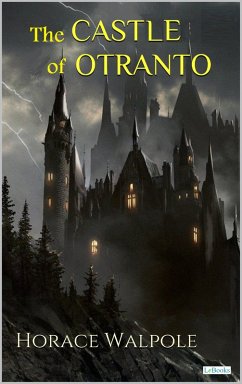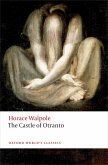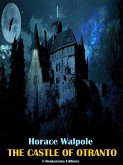The Castle of Otranto is a 1764 novel written by British author Horace Walpole. It is the first novel in Gothic literature, having inspired many later authors such as Ann Radcliffe, Bram Stoker, Daphne du Maurier, and Stephen King. In the work, the author blends two types of novels: the ancient, dominated by imagination, and the modern, true to reality. The result is a mixture of the supernatural, ghostly visions, and inexplicable events on the one hand, with the passions, intrigues, and psychology characteristic of flesh-and-blood people on the other. It is a classic reputed as the pioneer of the Gothic genre, much appreciated by today's readers. It is no wonder that The Castle of Otranto is part of the famous collection "1001 Books You Must Read Before You Die."
Dieser Download kann aus rechtlichen Gründen nur mit Rechnungsadresse in A, B, BG, CY, CZ, D, DK, EW, E, FIN, F, GR, H, IRL, I, LT, L, LR, M, NL, PL, P, R, S, SLO, SK ausgeliefert werden.









